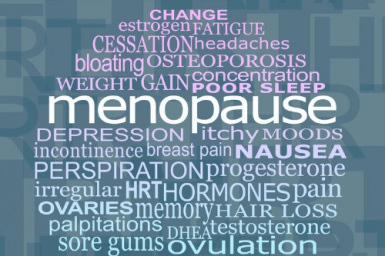
In today's rapidly changing work environment, businesses across various industries are faced with the challenge of retaining valuable talent. However, there is one demographic that often remains overlooked when it comes to workforce support and retention: menopausal women.
Did you know that women are leaving the work environment due to menopause symptoms, and this trend is costing companies more than they might realise?
The Menopause Conundrum
Menopause, a natural phase in a woman's life usually occurring between the ages of 45 and 55, at a time when most women have reached senior management positions, this stage in a women's life brings about a series of physical and psychological changes. These changes, such as hot flashes, brain fog, reduced concentration and sleep disturbances, can significantly impact a woman's ability to perform optimally in her job. Unfortunately, many employers fail to acknowledge the challenges that menopausal women face in the workplace, leading to negative consequences for both employees and the companies themselves.
The Cost of Ignoring Menopause
A 2019 survey conducted by the Chartered Institute for Personnel and Development (CIPD) found that three in five menopausal women were negatively affected at work. Moreover, research by BUPA indicates that almost 900,000 women in the UK have left their jobs due to menopausal symptoms. This alarming statistic emphasises the urgent need for employers, including insurance companies, to address this issue proactively.
The Financial Implications for Businesses
The cost of losing skilled, senior employees due to menopausal symptoms is not limited to recruitment expenses. Hiring and training new staff can be an expensive and time-consuming process. Recruitment costs can amount to 10-30% of an employee's salary, and retraining expenses can reach up to £5000 per employee. With these numbers in mind, it becomes evident that creating a menopause-friendly work environment is not just a matter of social responsibility but also a smart financial decision.
The Menopause-Friendly Workplace
Becoming a menopause-friendly workplace involves recognizing and addressing the unique needs of menopausal employees. It means offering support, resources, and education to help women manage their symptoms effectively. By doing so, insurance companies can retain their valuable staff and avoid the costly process of recruiting and training replacements.
Dr. Joanne Hobson and The Menopause Consortium
One valuable resource for companies looking to become menopause-friendly is Dr. Joanne Hobson, British Menopause Society Accredited Specialist and Clinical Lead Director of The Menopause Consortium. Dr. Hobson provides evidenced-based interactive seminars and webinars to educate employees and employers about menopause in the workplace. Additionally, her organisation offers free resources to help companies implement menopause-friendly policies.
Legal Considerations
Although menopause is not a protected characteristic under employment law, recent tribunal cases have seen women winning cases based on disability or sexual discrimination, with compensation running into thousands of pounds. This highlights the legal risk for companies that fail to address menopause-related issues.
A Call to Action
In conclusion, can an industry such as insurance afford to ignore the cost implications of neglecting nearly 40% of its workforce by not becoming a menopause-friendly workplace? Companies are not only losing valuable employees but also exposing themselves to legal and financial risks.
It's time for insurance companies and other businesses to acknowledge the challenges that menopausal women face in the workplace and take concrete steps to support them. Through education, resources, and access to healthcare, companies can create a more inclusive and productive work environment while safeguarding their bottom line. The choice is clear: embrace the menopause-friendly workplace, or risk losing out on talent and facing the consequences of inaction.
Authored by The Menopause Consortium
To find out how they can help create a menopause-friendly workplace CLICK HERE

